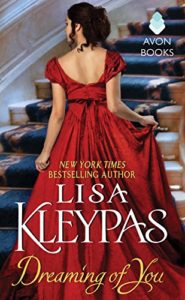This historical novel is a little off-brand for my adult reading, but I’d been reading a lot of historical YA, especially WW II stories, and I saw this at the store and it sounded good, so in my basket it went. But I liked the story so I decided to share it with you all.

This World War II story is told from the perspective of two youngish women: Ava, an American who works for the Library of Congress and has experience with some of the mid-century tech used in libraries (microfiche etc.), and Elaine, a married Frenchwoman living in German-occupied Lyon.
Ava gets tapped to go to Europe and help with document/news collection and processing in Portugal, a neutral country in the war. Meanwhile, Elaine’s husband goes missing and she gets involved with the French Resistance, first delivering supplies and eventually helping to publish one of the underground newspapers.
The book description made it sound like these two would be in contact, but it actually takes a while for that to happen. So basically, it’s two completely disparate stories. Elaine is in much more danger than Ava and I found her story more compelling, but Ava was an admirable person and tried to do good in the face of apathy on the part of the Americans in Portugal. As we know, people didn’t really believe what was happening to the Jews and others—they chalked it up to “war rumors” because it seemed so unbelievable. Eventually Ava is able to do more, and she rises to the occasion, which I liked.
But Elaine’s story has way more tension because she’s in constant danger. She has a different identity, lives in various different locations, has different roles in the Resistance, and she has to fight to join the Resistance at all. But she is one of those heroic people who truly risked everything in order to fight the Germans in the only way they could.
Eventually, there is a connection between Ava and Elaine, and that storyline is riveting and does go on for a while. It’s really the one positive thing that happens in the book, which is absolutely realistic. Even when they end well, war stories are always depressing to read for me (it does make you wonder why I enjoy reading them, but I do…).
There is virtually no romance in this book, so don’t read it if you are looking for that, but it is the story of two brave wartime women trying to do the right things. If you enjoy WW II fiction, you should like this one.
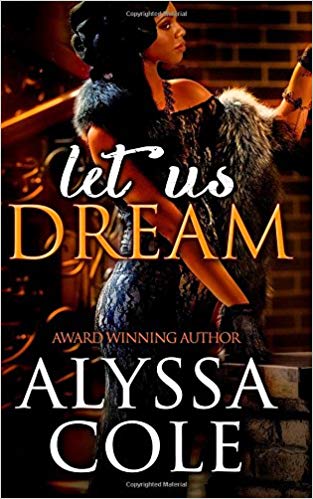 Let Us Dream is another slim but packed novel like Cole’s Let It Shine—and it’s equally good. This one’s set 50 years earlier, in 1917 Harlem. The heroine is Bertha Hines, a cabaret owner who has a secret that keeps her constantly nervous and a past that keeps her fairly buttoned-up. Amir Chowdhury is a Muslim Indian in the U.S. illegally, trying to make his way.
Let Us Dream is another slim but packed novel like Cole’s Let It Shine—and it’s equally good. This one’s set 50 years earlier, in 1917 Harlem. The heroine is Bertha Hines, a cabaret owner who has a secret that keeps her constantly nervous and a past that keeps her fairly buttoned-up. Amir Chowdhury is a Muslim Indian in the U.S. illegally, trying to make his way.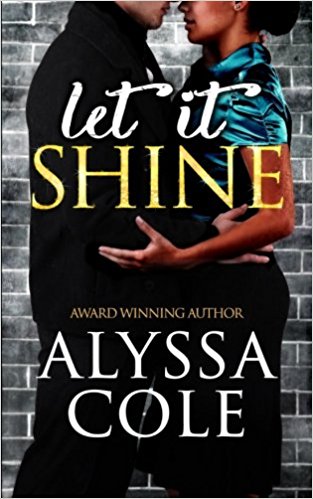 Let It Shine is a slim book, coming in at a little over 100 pages, but it doesn’t feel short. I mean that in the good way—it’s complex and substantive and I really enjoyed it.
Let It Shine is a slim book, coming in at a little over 100 pages, but it doesn’t feel short. I mean that in the good way—it’s complex and substantive and I really enjoyed it.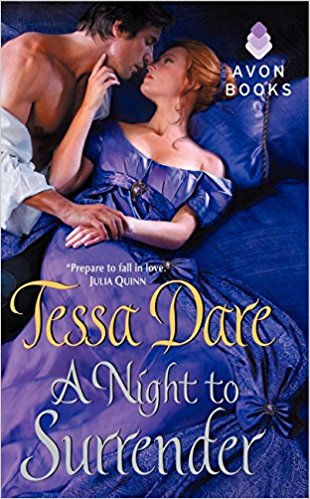 I’m pretty sure this is the first regency romance I’ve read (excepting Jane Austen) since I usually stick to contemporaries. This book reminded me of why that is—the men in that time were pretty horrible. Even the “good” ones. Also, corsets. Why do people think those are romantic? You can’t breathe in them. Breathing is important. It keeps you from passing out and stuff.
I’m pretty sure this is the first regency romance I’ve read (excepting Jane Austen) since I usually stick to contemporaries. This book reminded me of why that is—the men in that time were pretty horrible. Even the “good” ones. Also, corsets. Why do people think those are romantic? You can’t breathe in them. Breathing is important. It keeps you from passing out and stuff.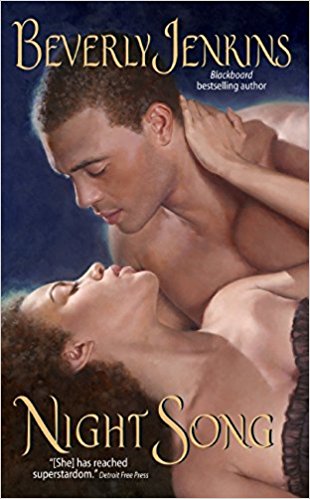 This is Jenkins’ first novel, the one that the publishing world didn’t know what to do with and amazed everyone. A story about post-Civil War black people? What? Who’d want to read that.
This is Jenkins’ first novel, the one that the publishing world didn’t know what to do with and amazed everyone. A story about post-Civil War black people? What? Who’d want to read that.